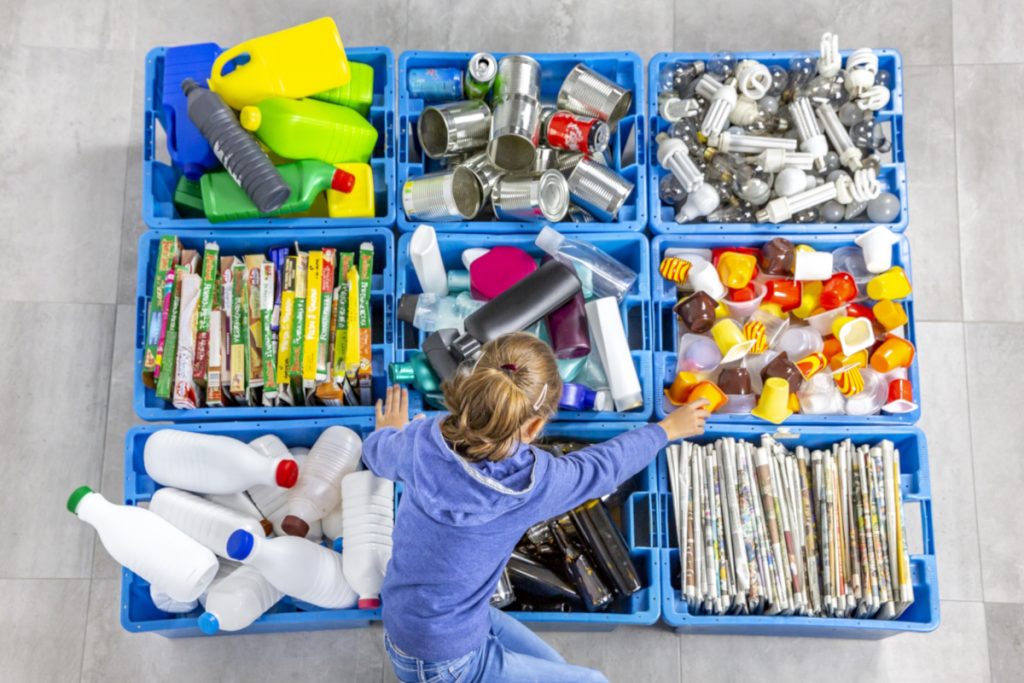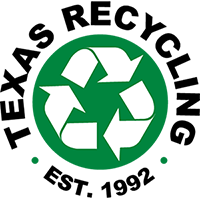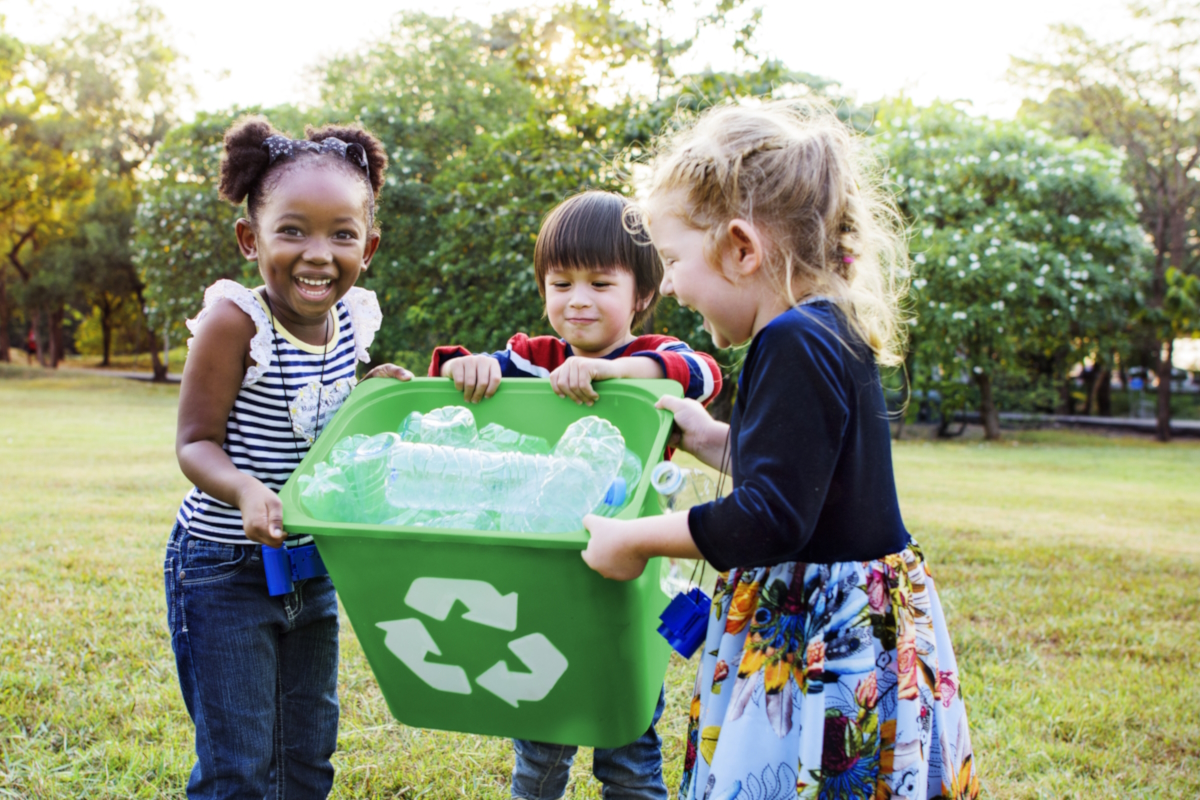The current recycling system has lingering challenges to address if we hope to improve the future of recycling and, in turn, help our community and environment by reducing the number of recyclable materials needlessly ending up in landfills worldwide. Unfortunately, many municipal recycling programs are being discontinued due to an oversupply of recyclables and the costs of processing them for municipalities. This is true even as societal awareness to Reduce, Reuse, and Recycle grows by leaps and bounds.
Single-bin recycling has made it easy for consumers. Plastics, glass, and other recyclable materials can conveniently be placed in one container—no separation or extra steps needed. But the simplicity of the process has also made it easier to cut corners and let standards slide. For example:
- Items that could be easily recycled aren’t getting rinsed properly.
- Items that shouldn’t be recycled—including greasy cardboard and dirty cans—are tossed into the bin mix.
The level of contamination of recyclables has increased exponentially as people forget that even a small percentage of contaminated products in a large truckload can make the entire contents unrecyclable. As a result, we’re needlessly costing the entire system time and money.
Texas Recycling: A Recycling Center for Metal, Paper, Cardboard Recycling and More! 214-357-0262
Sure, we’ve been trained to recycle. But are we recycling correctly? How do we reduce contamination and ensure the future of recycling can move forward successfully? The Environmental Protection Agency’s most recent statistics show that Americans produced 292.4 million tons of municipal solid waste in 2018 alone, or 4.9 pounds per person per day. And while the EPA estimates that most of those items are recyclable, plenty of contaminated recycling is going on. Therefore, steps need to be taken to increase the amount being recycled. As a nation, we would benefit from additional training and awareness to avoid hurting the purity of potential recyclables.
The Environmental Protection Agency’s most recent statistics show that Americans produced 292.4 million tons of municipal solid waste in 2018 alone, or 4.9 pounds per person per day.
7 Ideas To Ensure the Future of Recycling
- Educate consumers in recycling practices — There must be clear and understandable rules and guidelines for what can and cannot be recycled. Nationally standardized labeling would be a first step in reducing contamination and recycling costs.
- When in doubt, throw it out — It is better to throw a single item away instead of contaminating and needing to throw away an entire truckload of otherwise quality recyclable materials.
- Changes in packaging practices — More than everyday families and businesses, manufacturers should implement policies to only produce packaging that can be recycled easily and without contamination.
- Invest in technologies that make pure recycling easier — Appliances are being produced that will identify, wash, sort, and grind recyclables in the home, making them ready for a pure pickup. Improved technology will also benefit the future of recycling by streamlining the pick-up and delivery processes.
- Make Closed-Loop Recycling the end goal for the future of recycling — This means that instead of a plastic water bottle being remade into a different and often “lesser” product that will then just be thrown away, a plastic water bottle will be manufactured into another plastic bottle that can be recycled and remanufactured multiple times.
- Shift the economic paradigm so environmental impact is included in costs and labeling — This will drive consumers to purchase recyclable products and encourage manufacturers to produce sustainable products.
- Continue to encourage and educate consumers — We can’t stress this enough. Prioritize the environment and the environmental future of the planet. Once the demand for more recyclable and recycled products increases, there will be more opportunities for profit and encouraging innovations that will benefit the future of recycling.
Texas Recycling: Our Recycling Center Helps Your Business with Revenue from Recycling. Call 214-357-0262

Texas Recycling Wants to Be Your Dallas Recycling Partner
If consumers and industries take steps to reduce the number of contaminants in recycling, the amount of desirable, pure, recyclable raw materials will bring us toward a better, more sustainable future. Meanwhile, please remember that Texas Recycling is dedicated to improving the environment by providing the highest-quality recycling services in the D/FW Metroplex. Our creative solutions help companies embrace environmental responsibility and sustainability.
Texas Recycling offers personalized customer service for our commercial and industrial customer accounts. Large commercial entities may qualify for schedule pickups based on quantity in the truckloads. At our Public Buy Back Center for individuals and smaller businesses near Fair Park and Downtown Dallas, our friendly staff will help you unload your vehicle quickly in a convenient covered area.
Help the environment and your bottom line by calling Texas Recycling at 214-357-0262 to get started on a commercial recycling or industrial recycling program for your organization.

